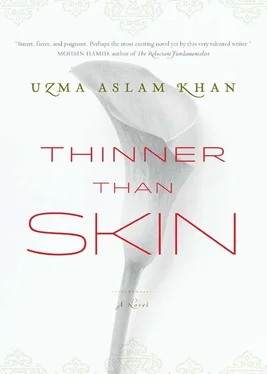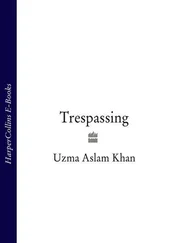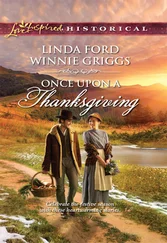Her hands were still wet from milking Kola’s mother, who had given birth again. She could milk a goat with one hand; it was the buffaloes that needed milking with two. She could just about hold the teats with the fingers of her right hand but squeezing them caused her pain. She needed her son for the buffaloes and he had helped her this morning, as he had helped every morning since her injury, before leaving for the store.
He was good with teats. He stroked them in a way that made her wonder what else he was stroking. He never had to be taught. The first time, she was amazed at how easily the buffalo, Noor, accepted him. His fingers moved up and down her udder, petting, cajoling, alternating between the four teats as though he were ringing bells. He played each in a rhythm all his own, back and forth, at times barely brushing one to make it swell, other times, lingering with his knuckle. Within moments, all four had distended till they threatened to burst. Then he took one in each hand, pressed hard, and tugged. Two teats at a time. It took him twenty minutes to relieve Noor; it used to take her thirty.
She was still studying the dog’s ear. Of the two boys who had gone missing, neither was her son. Her relief was warmer than milk. The news began to creep away. The dog’s ear stayed upright as she returned to the goat. And that was when her relief faded. The news raced back on a hundred little legs. The dogs had not barked . If the men who took the boys were to enter her dera, the dogs would let them. She would wake up in the morning to the lowing of buffaloes, wondering why they had not been milked before Younis left for the store, and, rushing to his bed, find him gone. Outside, the dogs would be lying idle in the dirt, one ear cocked.
The messenger had not been able to say who had taken the boys. The men in uniform or the men in skullcaps? “They all begin to look the same.” He had said, voicing the fear of everyone in the valley. He was a year or two older than her son. Like her son, he would be wondering which side to join.
Kola’s mother, Makheri, had small teats, even after a second kidding. She carried them the way she carried her head, high and erect. Maryam had hoped that by now her udders would loosen, but no, they were still tight, still difficult to milk. She could brew a tea of cardamom and mint, as in the past, but it had not helped then, it would not help now. Kiran had named her, because troublesome is what she was, yet Kiran had always defended Makheri when Maryam complained about her teats. Like her brother, Kiran took naturally to milking the animals. Maryam brushed the thought away. She could not let the spirit of her beloved girl shame her into slowing down with this goat! She hastily finished — perhaps with excessive force — and left with the bucket, failing to return a few minutes later to check that the job was truly done. So what if a few prized drops remained in the teats? So what if she was grown as listless as the dogs!
All her children had their father’s patience. Perhaps, when she was old, the two who remained would be patient with her.
Inside the hut, she poured the milk into an earthenware pot that sat on ice in a tray. Twice a day, her son delivered the ice, to keep the milk cool. In the mountains, they did not have to worry about these things. But they were not in the mountains. She ought to accept it. She ought to slosh the milk, make the butter. This too was difficult with one hand but she was not going to ask her son to stoop so low. Nor would she bother her husband.
It was not the season to make butter, but they were running out of supplies, in part because so much had been given away to placate the men who now occupied her valley. The milk too. They wanted tea brewed in raw milk on every “visit.” They called it God’s blessing, milk straight from the source, while leering at her breasts, while telling her to pray. They wanted it stirred with all the sugar the cup could hold. She would have to see about getting smaller cups.
Maryam sat at the edge of the bed, staring at the pot with the milk.
So now they were after Ghafoor. They had a name and a face for their own mess. And those two boys who had gone missing — what did they have to do with it?
The news had taken up residence in her home.
Years ago, before Ghafoor burned the forest inspector’s home— if it was him — before the inspector was even hired, his boss had singled out her dera to harass. This man claimed that their grazing permit was fake. He said they had made it themselves. When her husband showed him the state stamp, the man laughed. “This? No, your stamp must look like this .” And he took from his pocket a piece of paper, the likes of which they had never seen before. They could not read. They could only say sorry. The man fined them a month’s worth of milk and tried to force them to accept a settlement program. “Learn to farm,” he said, tearing up their permit.
She had watched members of her dera give in, allowing meager plots of land to be allotted to them. She saw the fight seep from their pores like moisture from a milkpot. She saw her brother, still living in the Punjab as a laborer, bound to contractors who pocketed his sweat. She even had a cousin who would likely be a forest inspector one day, smuggling trees downstream or in wedding caravans, while fining the herders for over-grazing. When her husband, who vowed never to become sedentary, berated the betrayal over dinner one day, her son, who was then no more than six, said he would rather be a forest inspector than a herder. She had slapped him. Kiran, then barely four, had not spoken to her brother for days.
And now, with all the other kinds of men moving into her valley without a permit — for them, movement was free — now what betrayal was going through her son’s head? He had the fingers of a god when he stroked the teats of a buffalo. But the rest of him was a man. No longer a child. A man.
Ghafoor’s offer, before he left, reverberated in her head. He can come with me, Maryam. He will be safer .
Maryam shuffled her way to the milkpot. Shuffling was new to her. She poured half the milk into a wooden container which she dragged back to the bed, then sat down again, propping the container between her knees. With a long wooden paddle that reminded her of an oar used to row a boat on a lake at the banks of which, not too long ago, her family had camped, she began to churn. It was not easy, agitating the milk with one hand. The day was growing hot; she had to do this now.
Perhaps it was the sound of the butter thickening that pulled her into a strange, sweat-induced dream. She sat upright, her body swaying with the rhythm of the paddle, but her mind drifted so far away she might have called the dream holy. Only, the visions playing in her head could not be called holy, not even by the most devious gods.
She was watching, through someone else’s eyes — the eyes of a man she did not know — a group of Gujjar boys leave their homes early one morning. As she watched, through these strange pair of eyes, a second man began to follow the boys. A cigarette dangled from between his lips, not the bidi cigarettes the herders smoked, but the filtered kind she saw nestled behind her son’s ear one day, Dunhill , he had called it, when she went to the store to give him the lunch he forgot to take that morning. He stalked his prey, this man with the Dunhill dangling from his lips, taking his time before singling out the weakest of the pack, the one with the curly brown hair and trusting eyes and godly fingers, drawing him aside with the promise of a ride into the city in his car, a car the boy could drive. And this man who was watching it all: he was in the car.
The image changed. Now she was herself, Maryam, and she knew that what she saw was not a prophecy but a memory, one from earlier this year, weeks before they packed their belongings to leave for the mountain pastures. She had seen her son bathing in the stream with a group of other boys his age or older. The water was still cold and it was their yearly ritual, before they left for the summer, they had to jump in the stream. This year, as she watched, she told herself that he had only just turned nine. Yet, there was a change, a change she recognized because she had been his age when she licked the honey from the fingers of her brother’s best friend. The boys splashed each other’s smooth, sleek skin and laughed and splashed the hair beginning to stream from between their legs. She knew this laughter was no more innocent than her own had been. She knew too the ritual within the ritual, what exactly they were displaying, those older boys. As a nine-year-old to a nine-year-old was not a boy, so to a twelve-year-old, he was not an adult. The older boys relished the power they pulled from their younger audience, a power that caused the very currents in the river to flow. Hoping that, while they waited impatiently for the same miracle to happen between their own thighs, some boys would never do more than look at the miracles of others, she had steered herself away from the stream.
Читать дальше












